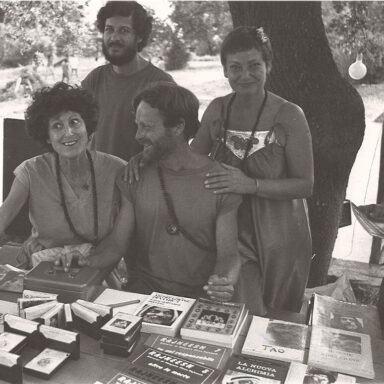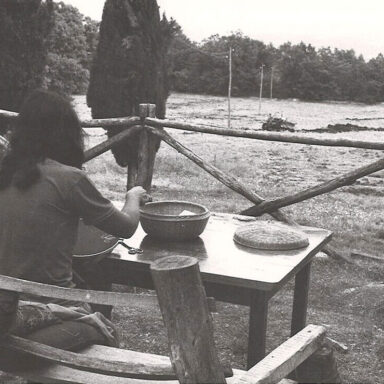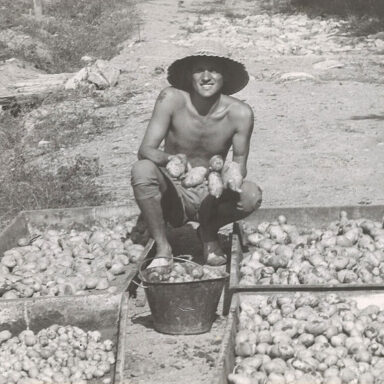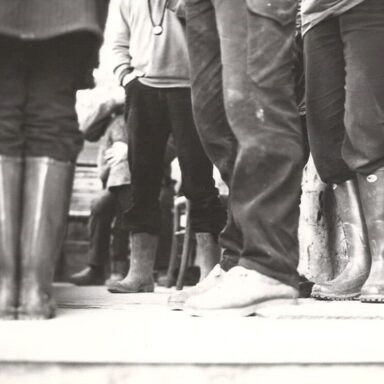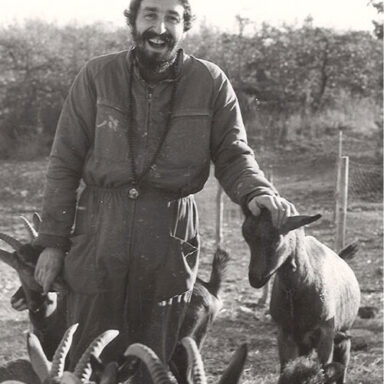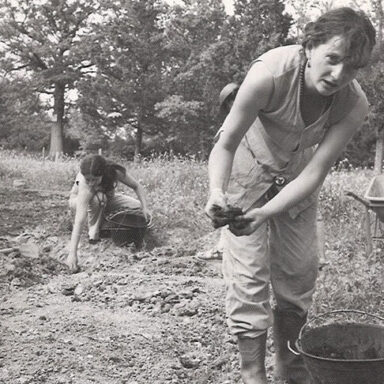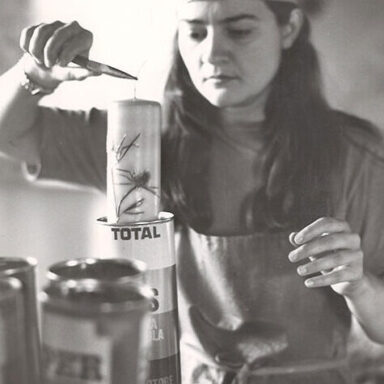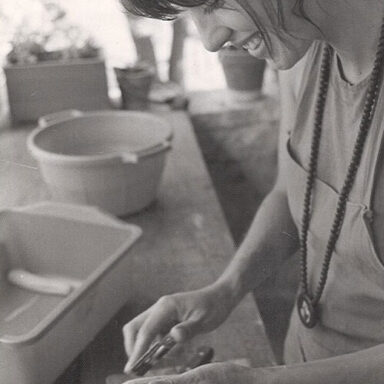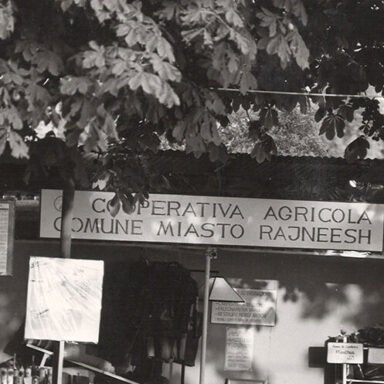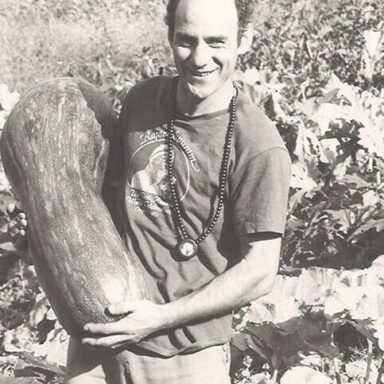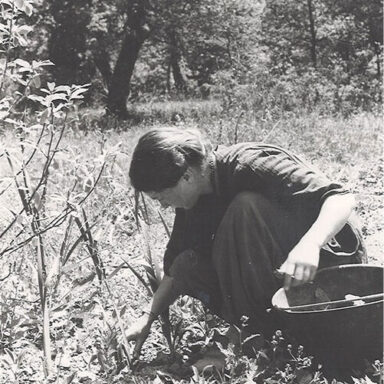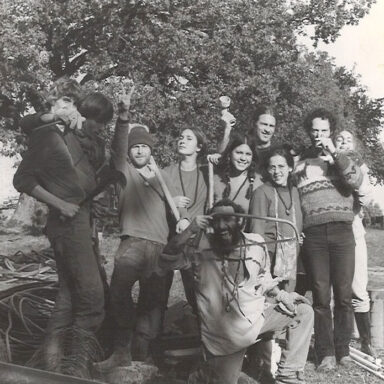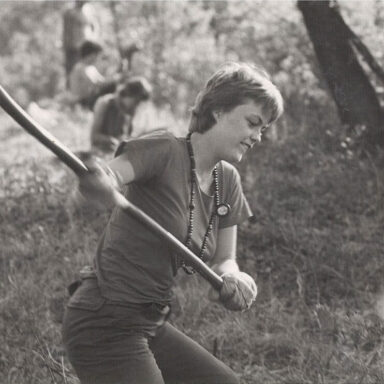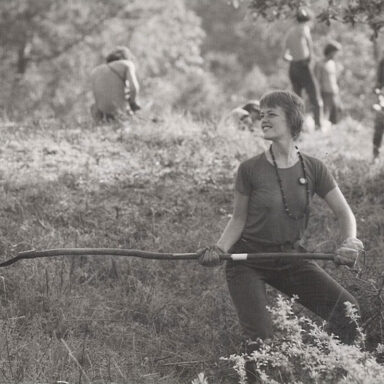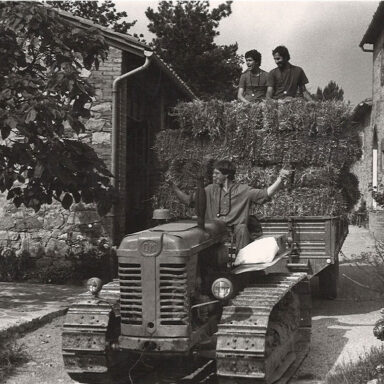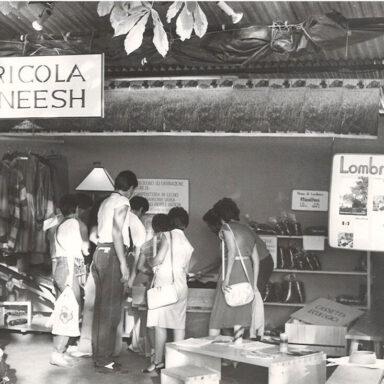
Ivano is a historical presence within Miasto, both for the long period that he has spent within the commune and for the contribution he has given to the development and growth of the place.
He spends his days in the garden, where he takes care of the land with care and love.
His dedication is admirable and despite his 79 years, every pumpkin, every tomato, every little carrot, passes through his hands.
He is always willing to give some advice: you could define him as a man with a thousand resources and knowledge that makes simplicity the style of his life.
With the same simplicity, he chose to tell us the story of Osho Miasto through his eyes, who were able to enjoy this immense history and transformation forty years long…
“In the late ’70s, a group of about a dozen friends gathered around Pratiti, a fundamental presence in the history of this place, the founder and leader of the first important years of Miasto, which at the time was called Sagar.
I arrived in Miasto for the first time in 1980, my presence was initially due to some work I did for the commune, I had known for some years those who lived here and at the same time, I was beginning to be actively interested in meditation.
At that time, I, like many others, came to the inner search after a past made up of religious commitment first and then political.
Many were those disappointed by the political struggle who approached meditation and specifically in Osho, bringing the revolution from the outside world to the inner one.
Before Miasto, this place was an abandoned farm with only a couple of renovated places and used as holiday homes for some American families, while the remaining part was unusable.
Pratiti bought the place with the initial idea of founding a self-sufficient agricultural commune that was able to sustain itself with the produce grown inside it.
This idea soon clashed with the poor productivity of the land, but for a long time continued to work according to a specific development plan that contributed to the construction of some functional structures such as the stable and the greenhouse where we raised earthworms before and built heather brooms later.
We launched into different occupations, that of earthworms was perhaps the most curious, but it turned out to be quite profitable and allowed us to sustain ourselves for a long time, as well as funding trips to Oregon during the Festivals.

